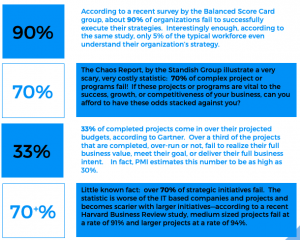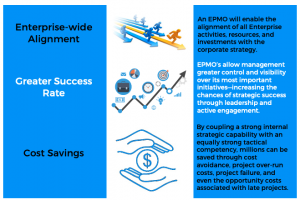May 10, 2024
I was recently asked to speak at a client sponsored meeting about major topics On The Minds Business Leaders. I was given 30 minutes and only two days to prepare. I chose to talk about the ethical considerations surrounding AI and Generative AI and what that means to business. Here is a summary of what I discussed and PM Principles stance on the issue.
The six (6) the top ethical considerations surrounding Generative AI in the business world:
1. Deepfakes and Dis[Mis]information: A Threat to Trust
The Issue: Generative AI is powerful–it can create incredibly realistic videos and images (deepfakes) that can be used to spread misinformation and manipulate public opinion. We, as humans, tend to believe that we see. So, if we see a created video or picture—we tend not to question its authenticity. This could easily damage company reputations, sow discord, and erode trust in the brand.
Why it Matters: Businesses rely on built trust with their customers and partners. Deepfakes used for malicious purposes can wreak havoc on brand reputation and market stability.
The Business Impact: Deepfake attacks could lead to financial losses, regulatory scrutiny, and a crisis of confidence in a company’s products or services. Most companies today really don’t know how to protect their brands and image—they’ve simply focused on building that brand and image.
PM Principle’s Position: Businesses need robust safeguards against deepfakes, including educating employees and customers on how to spot them. This should be incorporated in to the Crisis Management process. Collaboration with tech companies and policymakers is crucial to develop detection methods and even mitigation strategies and possible ‘legal penalties or recourse’. However, AI should be viewed as tool—and we don’t see that changing. In fact, we see it getting more powerful and more accessible.
#Deepfakes #Misinformation #TrustInBusiness
2. AI-Generated Content and Copyright Chaos
The Issue: Generative AI was built to create content that mimics existing styles, blurring the line between inspiration and imitation. This raises questions about copyright ownership and fair-use of creative materials. Authors are hating their work, their style, their uniqueness being synthetically imitated.
Why it Matters: Businesses [and users] need clear guidelines on how to use AI-generated content responsibly, ensuring they don’t infringe on existing copyrights or stifle creativity. As a global community we may also need to clearly define ‘creative material’ verses ‘knowledge material.’
The Business Impact: Copyright lawsuits and accusations of plagiarism can be costly and damage a company’s reputation, increase costs, and even introduce other complications. Business leaders may need to define the ‘when, how, who, and even what’ to use AI for.
PM Principle’s Position: As management consultants we have been disseminating data, practices, and methodologies for a long-time. We did manually, for a cost, and held those secrets for sale. For some firms (and we’re not judging) selling this type of information was their sole business practice. But, AI has now opened it up—democratized it, collectively, and disseminates it without cost. The legal landscape surrounding AI-generated content is still evolving. Businesses are pushing for clearer copyright frameworks to encourage responsible innovation in this field. Until then, I companies may need to form internal stances and positions. As a company, PM Principle uses AI—but those who have worked with us, know that we know the difference between foundational knowledge and competitive knowledge.
#GenerativeAI #Copyright #ContentCreation
3. AI-Driven Automation and the Future of Jobs
The Issue: Generative AI can automate many tasks currently performed by humans, leading to job displacement across various industries. Like computers, like the internet (thanks Al Gore), and even like the Amazon this is disruptive. It is a change. It will change our workforce. But we have to remember that “change” and “displace” are different.
Why it Matters: Businesses need to navigate the ethical implications of AI automation, ensuring a smooth transition for workers and fostering upskilling initiatives to avoid displacement.
The Business Impact: the role of Business is no longer just allegiance to a customer-base; it has evolved to include an allegiance to their workforce. Businesses have a responsibility to help workers adapt to the changing job. That means, we as workers, have to learn how to learn—constantly learn, and businesses have to make [adult] learning part of their change management practices.
PM Principle’s Position: A focus on reskilling and retraining talent is crucial to ensure a smooth transition as AI automates tasks. I specifically went to Harvard for my master’s in psychology simply to better help guide my clients in adult learning. Businesses should assume some responsibility for implementation of AI; however, a business’s main responsibility is to generate profits. Hence they will always seek greater efficiencies.
#GenerativeAI #FutureOfWork #Automation
4. Algorithmic Bias and Unequal Opportunities
The Issue: Generative AI models trained on biased data can perpetuate and heighten those inequalities. Imagine that perpetuating areas like your hiring, loan approvals for your company, and maybe internal risk assessments.
Why it Matters: Businesses have a responsibility to ensure fair and unbiased outcomes for all stakeholders. Biased AI can lead to discrimination and exacerbate existing social inequalities. Can data be fair? Can it be made unbiased?
The Business Impact: Public backlash, regulatory fines, and legal action can follow discriminatory practices fueled by biased AI. An “AI did it” may not be a good enough defense.
PM Principle’s Position: DATA MANAGEMENT!!!! Implementing rigorous data auditing and fairness checks for AI development is essential. Many of clients hate this word, but governance is essential. I recall a past client who just didn’t want to modernize their data practices. It was a battle. (One we unfortunately lost). Businesses should also strive for diverse teams that can identify and mitigate potential biases in data and AI algorithms.
#GenerativeAI #AlgorithmicBias #FairnessInAI
5. Privacy Concerns and the Power of Synthetic Data
The Issue: Generative AI can create synthetic data, which is realistic, but fabricated information nonetheless—extrapolated (if you want to use the statistical term). Additionally, there are also concerns about data privacy and potential misuse of personal information or business information.
Why it Matters: Businesses must ensure smart and responsible use of data, safeguarding user privacy, and adhering to data protection regulations are now essential elements of running a business. Significant changes in these areas should also be expected in the near future. New tools will arise in this space too. Additionally, securing business, customer, and other data will become increasingly important.
PM Principle’s Position: Data breaches, security violations, and privacy abuses can erode a customer trust and lead to heavy losses. Simply making if a point to know the details of your data, behind your data, how your data is used and stored, can a significant advantage. Customer data is key. Production secrets need to be well vaulted. Businesses need to be transparent about how they use data as much as how they secure data.
#GenerativeAI #Privacy #SyntheticData
6. The Black Box Problem and Explainability of AI
The Issue: Many Generative AI models are complex, making it difficult to understand how they arrive at their outputs, the algorithms used, and the ingredients in the secrete sauce. This inability to clearly understand and explain the answers that AI gives us, raises concerns—not only about accuracy and power, buy about accountability and potential misuse.
Why it Matters: Businesses need to be able to know and be able to explain the reasoning behind AI-generated decisions, especially when these decisions have a significant impact on individuals, society, customers, business, employees—they need to know to be able to defend and support.
The Business Impact: Lack of transparency in AI decision-making can lead to a loss of public trust and difficulty in defending against accusations of bias or unfairness. New costs in data protection, audits, governance, etc. may become necessary.
PM Principle’s Position: There’s a growing movement towards developing explainable AI (xAI or exAI) models that can provide clear insights into their reasoning. This is crucial for building trust and ensuring responsible use of Generative AI.
#GenerativeAI #ExplainableAI #BlackBoxProblem
By fostering open discussions about these ethical considerations, businesses can harness the power of Generative AI for positive change while navigating the potential pitfalls. Let’s continue the conversation!
Let us know how we can help.










